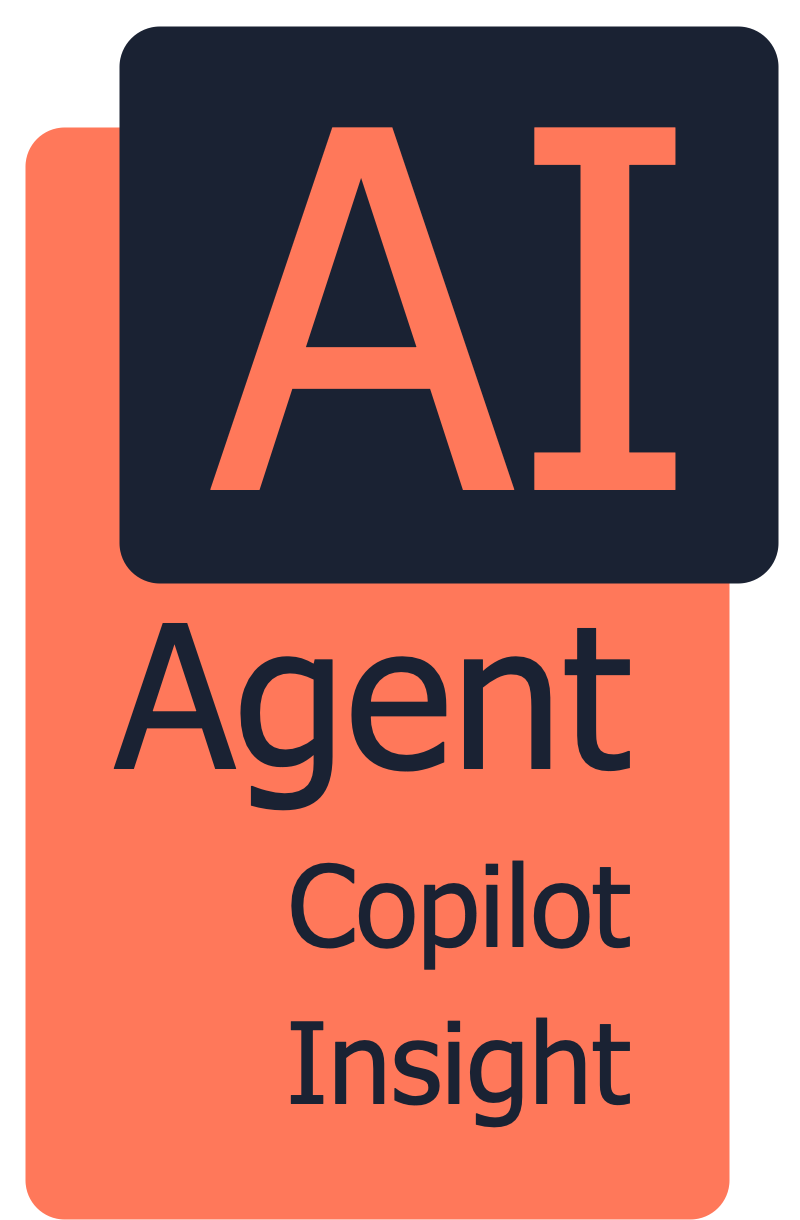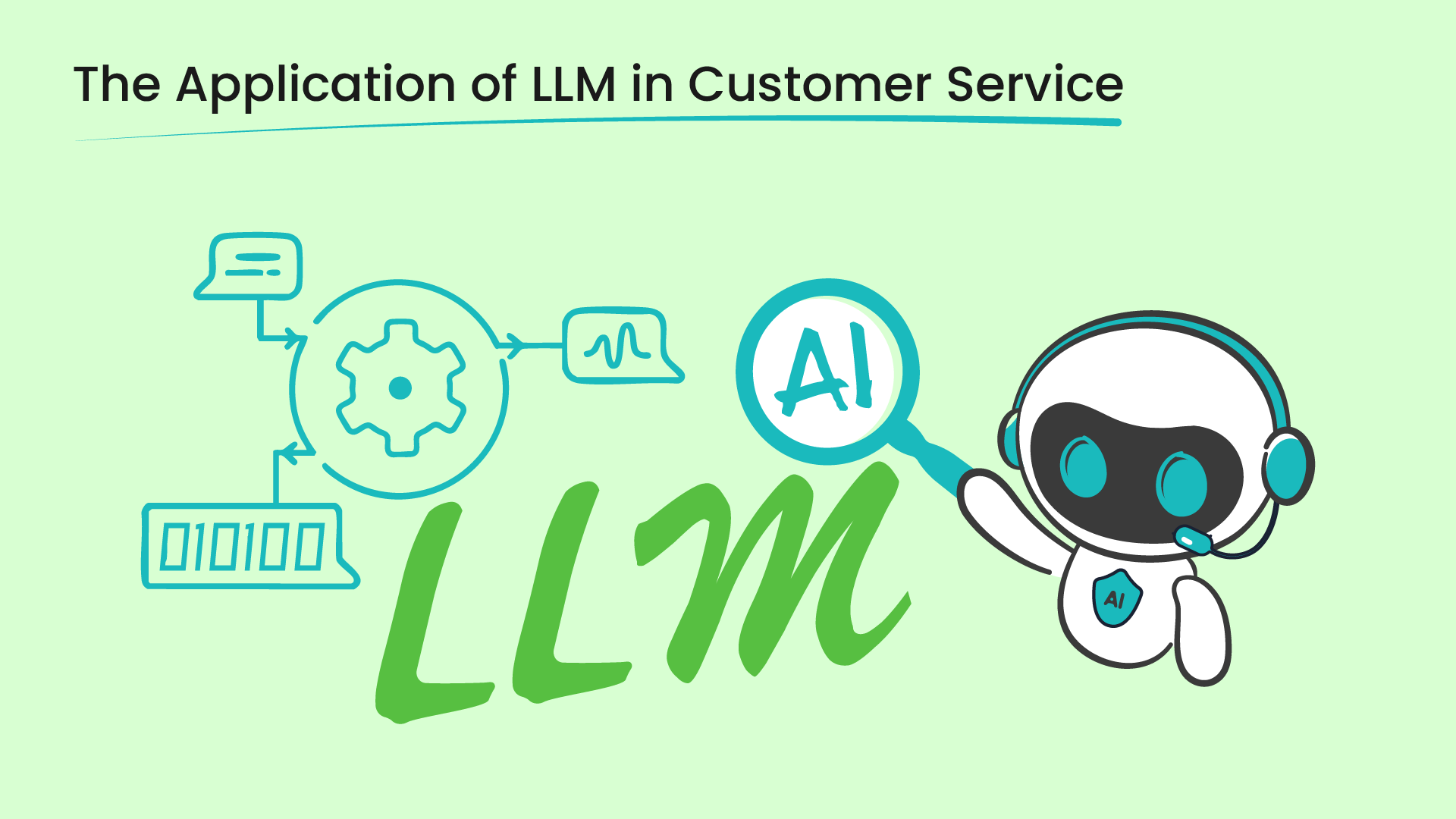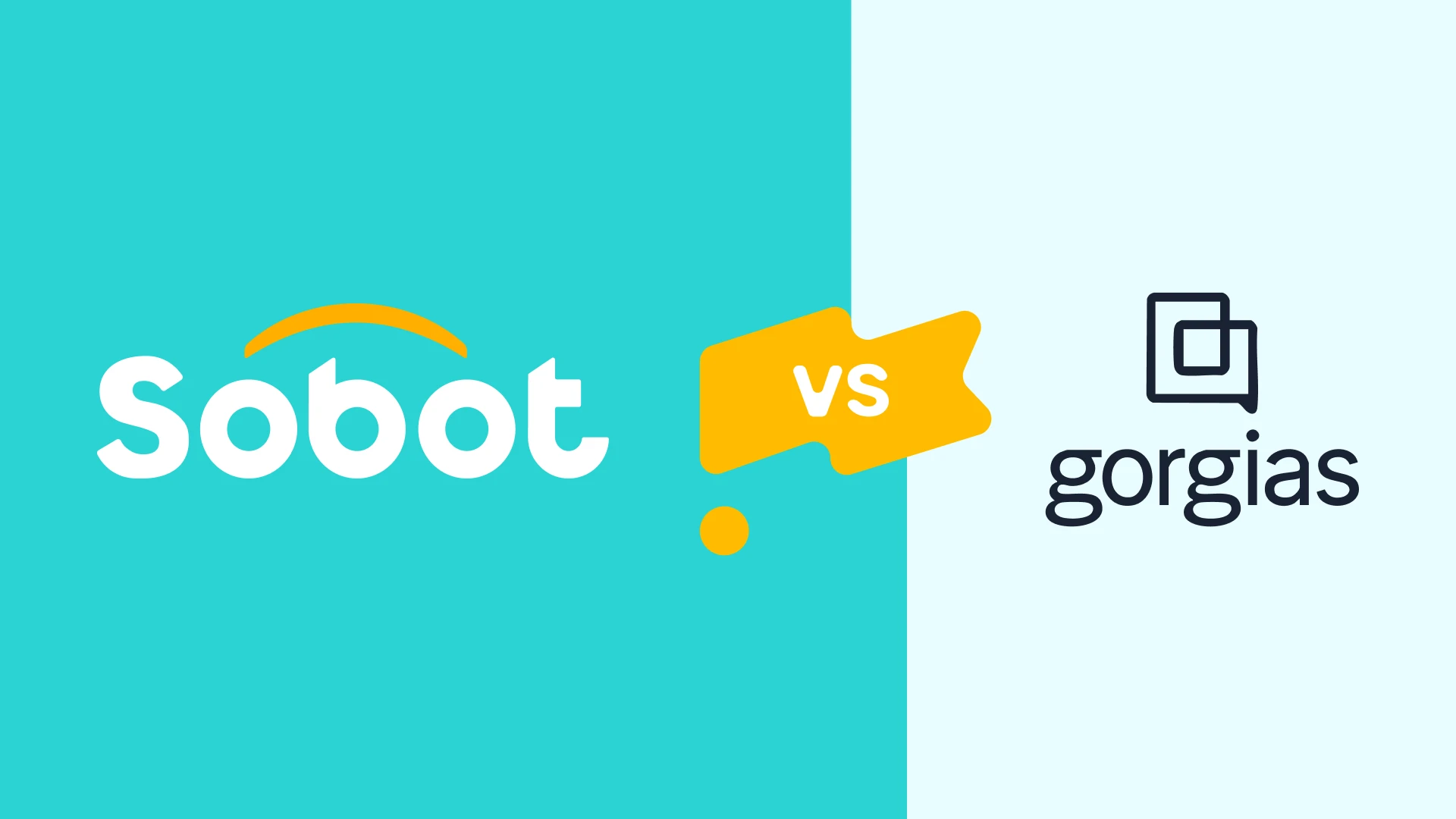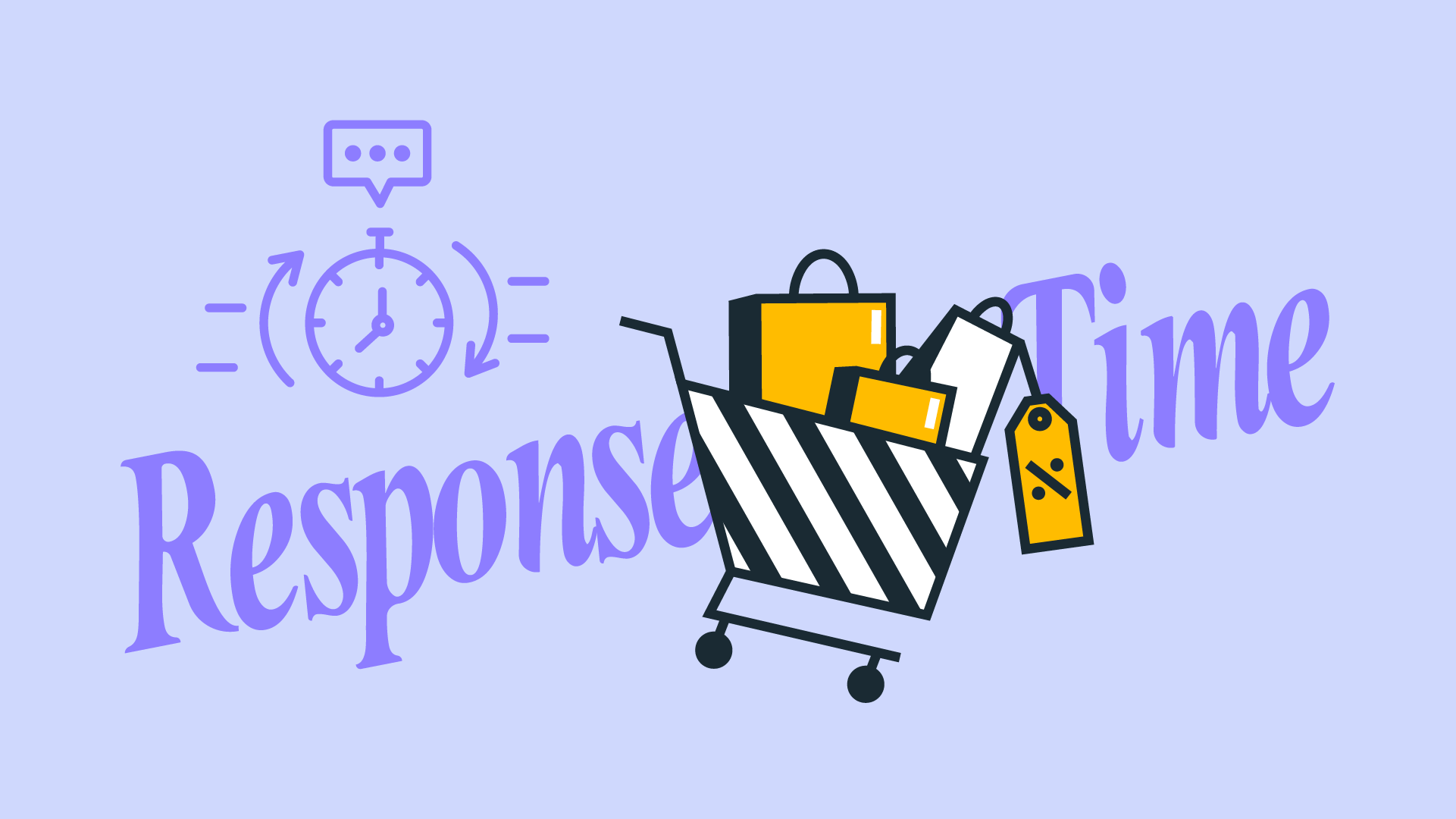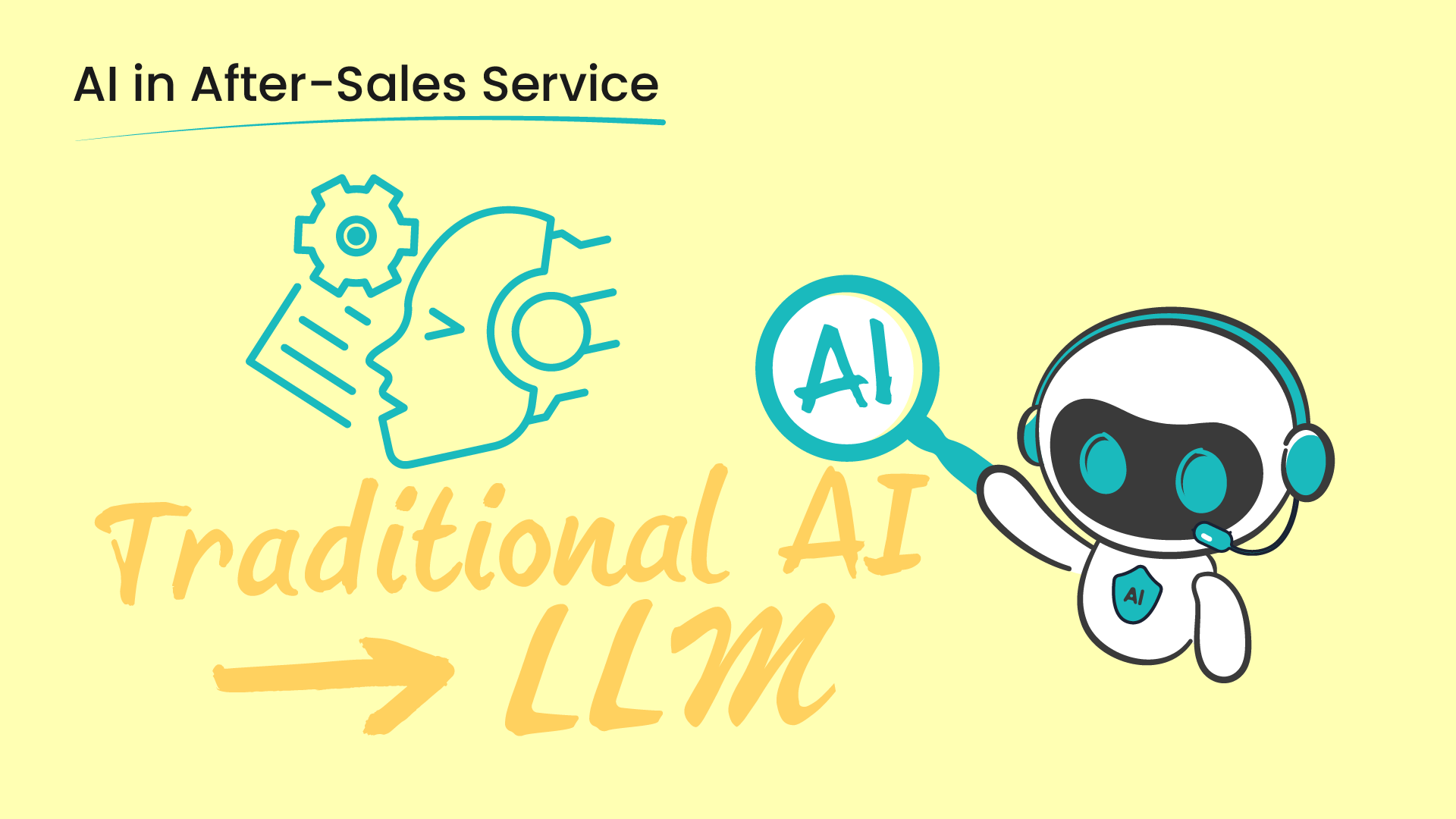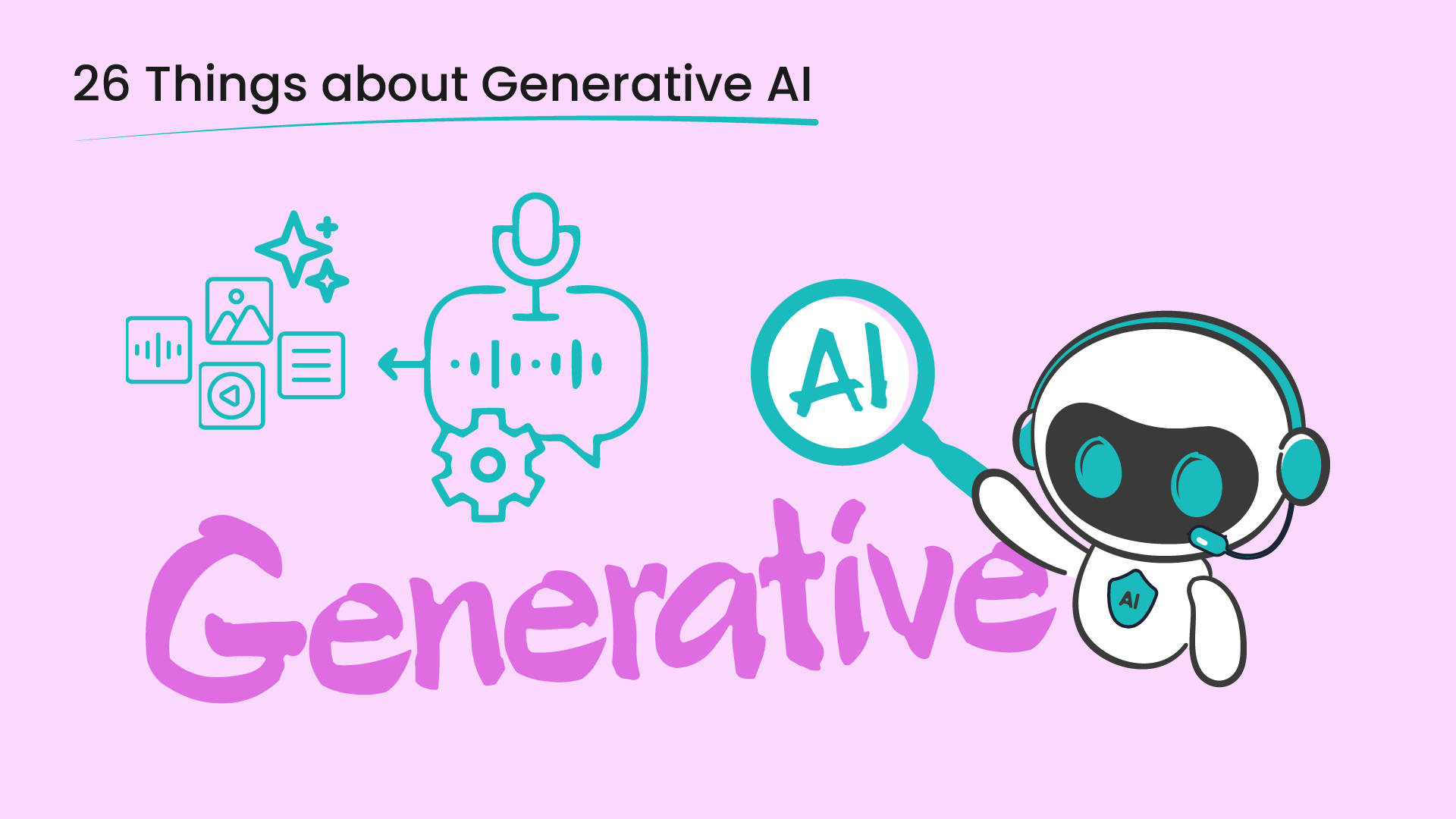Customer support has always been a resource-intensive domain, requiring businesses to manage vast amounts of data while addressing customer inquiries efficiently. To streamline operations and enhance customer satisfaction, many companies are turning to automation, with Large Language Models (LLMs) emerging as a game-changing solution.
Recent studies indicate that LLM implementation has led to a 10% increase in customer support efficiency, while 78% of customer service professionals report improved workplace performance due to AI and automation. The industry is witnessing a major shift from human-led interactions to AI-driven solutions. Gartner predicts that by 2025, 80% of customer service and support organizations will integrate generative AI to boost agent productivity and improve the overall customer experience.
In this article, we will delve into the transformative impact of LLMs on customer service, exploring key changes, emerging trends, real-world applications, and the future of AI-driven support.
Transformative Changes Brought by LLMs
LLMs have introduced groundbreaking advancements in customer service by improving natural language understanding, automating routine tasks, and enabling seamless multilingual support. These capabilities allow businesses to enhance efficiency, reduce operational costs, and deliver a more personalized customer experience.
Enhanced Natural Language Understanding
Contextual Comprehension
Large Language Models (LLMs) have revolutionized Natural Language Understanding (NLU), enabling customer service systems to interpret language beyond basic keyword detection. Unlike traditional chatbots, LLM-powered virtual assistants can comprehend complex queries, idiomatic expressions, and ambiguous inputs, ensuring more accurate responses. They recognize multi-turn conversations, allowing users to receive relevant answers without restating previous context. This ability enhances customer interactions, making them smoother and more intuitive.
Human-Like Interactions
LLMs are trained on vast datasets, enabling them to mimic human conversation patterns with remarkable accuracy. This means they can adapt their tone, respond empathetically, and understand sentiment, creating more engaging customer interactions. Businesses like Google and Amazon leverage this capability to develop AI-powered assistants that provide natural, dynamic, and context-aware support.
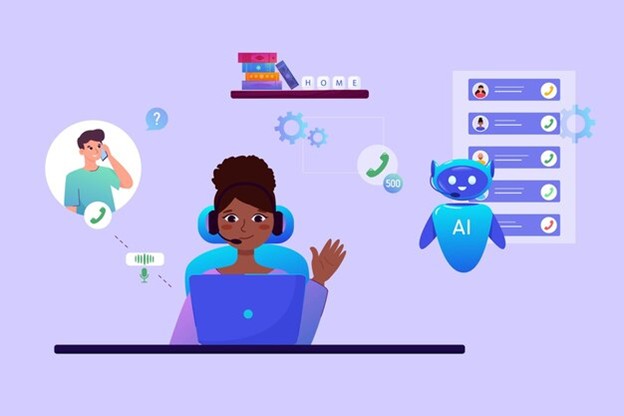
Automation of Routine Tasks
Chatbots and Virtual Assistants
LLMs automate a significant portion of customer service by handling routine tasks like answering FAQs, providing order updates, and processing refunds. AI-driven assistants are widely used in e-commerce (Walmart, eBay), tech support (Microsoft, Apple), and financial services (banks, fintech companies) to reduce human workload. They also assist in self-service troubleshooting, guiding customers through technical issues without human intervention.
Ticket Routing and Categorization
AI-powered customer service solutions classify and prioritize inquiries based on urgency and complexity. LLMs analyze customer messages in real-time to determine if a query belongs to billing, technical support, or general inquiries, ensuring swift and accurate routing. Platforms like HubSpot use LLMs for automated ticket categorization, reducing wait times and improving workflow efficiency.
Multilingual Support
Global Reach
LLMs facilitate seamless multilingual support, breaking language barriers for businesses operating worldwide. AI-powered customer service platforms, such as Google’s real-time translation services and eBay’s multilingual chat support, enable companies to communicate with users in their preferred language without hiring extensive multilingual teams.
Consistency
Machine translation models like Neural Machine Translation (NMT) ensure that responses remain consistent and contextually accurate across different languages. Travel and hospitality businesses use LLM-powered assistants to localize content and modify responses based on cultural norms, ensuring a more personalized and culturally relevant customer experience.
By integrating these advanced AI capabilities, LLMs enhance efficiency, reduce operational costs, and elevate the customer experience, making them indispensable in the evolving landscape of intelligent customer service.
Emerging Trends in AI-Driven Customer Service
As AI continues to evolve, businesses are leveraging LLMs to enhance customer support through predictive analytics, seamless integration with advanced technologies, and continuous learning. These trends are shaping a future where customer interactions are more intuitive, proactive, and efficient. Below, we explore the latest innovations driving AI-powered customer service.
Proactive Support
Predictive Analytics
AI-driven predictive analytics allows businesses to anticipate customer issues before they arise. By analyzing historical data and user behavior, LLMs identify recurring patterns, detect potential problems, and suggest proactive solutions. Companies like IBM Watson Assistant and ServiceNow Predictive Intelligence use predictive insights to resolve issues before they escalate, reducing downtime and enhancing customer satisfaction.
Personalized Recommendations
LLMs improve customer engagement by providing tailored recommendations based on previous interactions, preferences, and sentiment analysis. For instance, Salesforce Einstein Sentiment analyzes customer moods to suggest relevant solutions, ensuring a more personalized and responsive experience.
Integration with Other Technologies
Voice Assistants
AI-powered voice assistants like Amazon Alexa and Google Assistant enhance customer service by providing hands-free interactions. These assistants utilize LLMs to understand context, answer questions, and execute tasks, offering seamless user experiences in industries such as e-commerce and financial services.
IoT Devices
The integration of LLMs with IoT devices is revolutionizing customer support. Smart home systems, connected cars, and wearable devices can use AI to troubleshoot issues in real time. For example, Tesla vehicles leverage AI-driven support to diagnose and resolve technical problems remotely, reducing the need for manual intervention.
Continuous Learning and Improvement
Feedback Loops
LLMs refine their responses based on real-time customer feedback. AI-powered platforms like Freshdesk Freddy AI continuously analyze interactions to enhance knowledge bases, ensuring accurate and updated information for users.
Adaptive Responses
Unlike traditional rule-based systems, LLMs dynamically adapt to changing customer needs. Zendesk AI-powered ticketing and Zoho Desk Zia AI optimize response accuracy by learning from past support cases, leading to smarter and faster resolutions.
These AI-driven advancements are transforming customer service, making it more efficient, proactive, and user-friendly. As LLMs continue to evolve, businesses will increasingly rely on them to deliver seamless, personalized, and intelligent support experiences.
Comparing Customer Service: With and Without LLMs
Integrating Large Language Models (LLMs) into chatbots has significantly improved their capabilities, making them more efficient, context-aware, and scalable. Here’s a comparison of chatbots with and without LLMs:
Response Efficiency
Without LLMs:
- Rule-based chatbots follow predefined scripts and keyword matching, limiting their ability to handle complex queries.
- They struggle with nuanced language, often providing generic or irrelevant responses.
- Customers may face frustration due to the chatbot’s inability to understand intent beyond programmed phrases.
With LLMs:
- LLM-powered chatbots process and analyze natural language in real-time, allowing them to understand intent and context.
- They generate dynamic, personalized responses rather than relying on rigid scripts.
- For example, Lyft’s Claude AI-powered chatbot reduced support request resolution times by 87%, ensuring faster responses. (Source: The Verge)
Quality of Interaction
Without LLMs:
- Traditional chatbots lack deep contextual understanding, making conversations feel robotic and repetitive.
- They struggle with multi-turn interactions, requiring customers to rephrase or repeat queries.
- Sentiment analysis is limited, leading to impersonal interactions.
With LLMs:
- LLM-enhanced chatbots recognize tone, intent, and previous interactions, providing personalized and empathetic responses.
- They can maintain context across long conversations, improving the user experience.
- JPMorgan Chase’s AI-powered chatbot has improved customer engagement by accurately addressing a broader range of queries. (Source: wsj.com)
Scalability
Without LLMs:
- Standard chatbots require constant manual updates and struggle with expanding customer service demands.
- They cannot adapt to industry changes or new product updates without extensive reprogramming.
- Scaling support requires integrating multiple rule-based bots, increasing maintenance efforts.
With LLMs:
- LLM-powered chatbots continuously learn from new data, making them highly adaptable without frequent manual adjustments.
- They efficiently handle a growing number of interactions, providing real-time support at scale.
- Enterprise-customized LLMs help businesses handle peak demand periods seamlessly without increasing operational costs. (Source: deeperinsights.com)
Challenges and Considerations
The integration of Large Language Models (LLMs) into customer service operations offers numerous benefits, but it also presents several challenges and considerations that organizations must address to ensure ethical and effective deployment.
LLM Hallucinations and Slower Processing
LLM Hallucinations: LLMs sometimes generate factually incorrect or misleading responses due to data limitations. These errors fall into two categories:
- Factuality Illusion: When AI outputs information that is not based on real-world facts.
- Loyalty Illusion: When responses deviate from user instructions or intended context.
- Solution: Techniques like Retrieval-Augmented Generation (RAG) and Guardrails help improve accuracy by refining input data and verifying outputs.
Slower Processing Speeds: While LLMs enhance customer interactions, processing large datasets and generating complex responses can cause delays compared to traditional automated systems. Optimizing AI models and improving infrastructure are essential for balancing quality and speed.
Data Privacy and Security
Sensitive Information
LLMs process vast amounts of customer data, including sensitive information such as personal preferences and financial details. This extensive data handling raises significant privacy concerns, especially when AI systems operate autonomously without human oversight. Meredith Whittaker, President of the Signal Technology Foundation, highlighted the risks associated with agentic AI accessing sensitive data, emphasizing the potential security and privacy issues inherent in such systems.
Compliance
Adhering to data protection regulations, such as the General Data Protection Regulation (GDPR) in the European Union, is crucial when implementing LLMs in customer service. These regulations mandate that customers have the right not to be subject to decisions based solely on automated processing, underscoring the need for transparency and accountability in AI-driven interactions.

Ethical Implications
Bias and Fairness
LLMs trained on biased data can inadvertently perpetuate existing prejudices, leading to unfair treatment of certain customer groups. Algorithmic bias may arise from biased data sources, technical design flaws, or unanticipated applications, necessitating vigilant monitoring and mitigation strategies.
Transparency
The “black box” nature of many AI systems poses challenges in understanding how decisions are made, leading to distrust among users. Lack of transparency can result in algorithm aversion, where users are less likely to trust and accept AI-driven outcomes, especially when the decision-making process is opaque.
In conclusion, while LLMs offer substantial advancements in customer service efficiency, organizations must carefully navigate data privacy, maintain the human element in complex interactions, and uphold ethical standards to ensure responsible AI deployment.
Real-Life Use Cases of LLMs in Customer Support
The integration of Large Language Models (LLMs) into customer support has led to significant transformations across various industries. Companies like Dukaan and Sobot exemplify the profound impact of AI-driven solutions on customer service operations.
Dukaan’s Transition to AI Chatbots
Overview
Dukaan, an Indian e-commerce platform, undertook a notable shift by replacing 90% of its customer support staff with an AI-powered chatbot. This strategic move aimed to enhance operational efficiency and reduce costs.
Impact
The implementation of the AI chatbot led to a remarkable 85% reduction in customer support costs. Additionally, it improved query resolution times, demonstrating the chatbot’s capability to handle common and account-specific questions effectively.
AI Integration in Major Corporations
Google’s AI Initiatives
Google has been at the forefront of integrating AI into its services. The company has developed advanced AI models to enhance user experience across its platforms, including customer support. These initiatives aim to provide more personalized and efficient interactions.
Amazon’s AI Deployment
Amazon utilizes AI to streamline its customer service operations. By deploying AI-driven chatbots and virtual assistants, Amazon aims to provide timely responses and improve overall customer satisfaction.
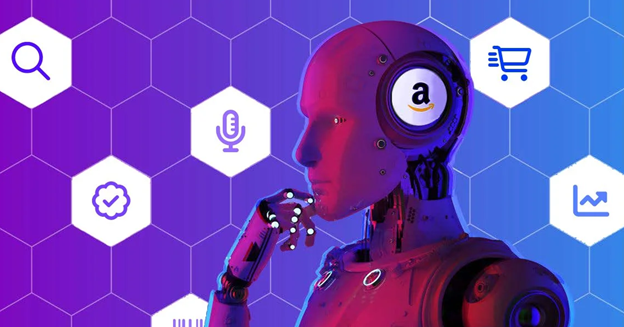
How Sobot Enhances Customer Support with LLMs
Sobot leverages Large Language Models (LLMs) to deliver advanced, AI-driven customer support beyond traditional chatbot capabilities. Unlike rule-based systems, LLM-powered chatbots improve conversation quality, adaptability, and real-time assistance.
AI-Powered Conversations
- Contextual Understanding: Sobot’s LLM-powered chatbot processes complex, multi-turn conversations while maintaining context. This allows for more human-like interactions and accurate query resolutions.
- Sentiment Detection: By analyzing customer tone and sentiment, Sobot adjusts responses dynamically, ensuring a personalized and empathetic approach.
Seamless Integration
- Adaptive Learning: Unlike standard chatbots, Sobot’s LLM continuously learns from past interactions, refining responses over time.
- Cross-Platform Consistency: The AI integrates across multiple support channels (email, chat, social media, and voice) to provide a unified customer experience.
Automation with a Human Touch
- Proactive AI-Human Collaboration: Sobot’s LLM suggests responses to human agents, improving productivity without compromising human oversight.
- Smart Escalation: Complex issues are automatically directed to human representatives, ensuring smooth customer interactions.
Improving Customer Satisfaction
- Enhanced Query Resolution: With LLM-driven insights, Sobot reduces resolution times by up to 70% while improving customer engagement.
- Predictive Assistance: AI analyzes customer behavior to anticipate needs, offering solutions before issues arise, boosting satisfaction and retention.
Sobot’s LLM-enhanced AI support showcases how advanced NLP capabilities are transforming customer service efficiency, personalization, and automation, setting a new industry standard.
Future Outlook
The future of AI-driven customer support looks promising, with advancements in personalization, immersive technologies, and human-AI collaboration. Here are some key trends shaping the next generation of customer service:
- Advanced Personalization: The future of LLMs lies in hyper-personalized experiences and emotion recognition, enabling chatbots to respond not just to words but also to emotions.
- Integration with Augmented Reality (AR): Imagine using AR glasses to receive real-time support, such as virtual product demonstrations or step-by-step troubleshooting guides.
- Collaborative AI-Human Support Models: Hybrid approaches that combine the strengths of AI and human agents will dominate the future, ensuring both efficiency and empathy in customer service.
Conclusion
Large Language Models (LLMs) are transforming customer support by enhancing efficiency, automating tasks, and providing multilingual assistance. They enable hyper-personalized experiences, streamline issue resolution, and integrate with advanced technologies like AR and IoT.
While LLMs improve scalability and reduce costs, businesses must address challenges like data privacy, ethical concerns, and over-reliance on automation. Companies like Google, Amazon, and Dukaan are leveraging AI-driven solutions to enhance customer interactions.
Sobot, a leader in AI-powered customer support, integrates LLMs to provide seamless, automated conversations while maintaining a human touch, ensuring higher customer satisfaction and efficient service delivery.
FAQs
How to improve customer servie efficiency and quality with LLM?
AI Agent has developed for many years, but it’s still occasionally criticized by customers as “incompetent”. However, with LLM, AI Agent can witness a sea change.
For customers, it can be more natural to receive customers like a person, being able to refer to context and emotions to understand customer intentions, and providing more comprehensive and detailed solutions. All of these can lead to higher problem resolution rate and customer satisfaction.
For agents and enterprises, LLM-powered AI Agent can extract knowledge from complex unstructured documents, expand knowledge in a certain industry, and accept naturally expressed rules and instructions. All these abilities can help enterprises quickly establish and manage knowledge base and standardize intelligent service. Ultimately, the customer service efficiency and quality of enterprises can both be improved.
What are AI Agents?
AI agent is considered as a major breakthrough in AI, especially after it is combined with LLM.
To conclude, AI agent is a software program that can understand customer intentions, collect and process customer data, and ultimately provide feedback to customers or perform tasks. Human set goals and pose questions, and AI agent can independently choose the best way to achieve these goals.
Does Sobot provide free AI Chatbot, AI Voicebot and AI Agent?
Sobot AI solution is mainly for enterprises needs payment under most situations.
But if you are a global public welfare organization that needs to use Sobot products in public health and safety, we will provide them to you for free.
Sobot products have no minimum seat number or conversation consumption limits, so if you’re a startup or small-sized team, it’s cost-effective to contact us. We can provide a free trial to you!
